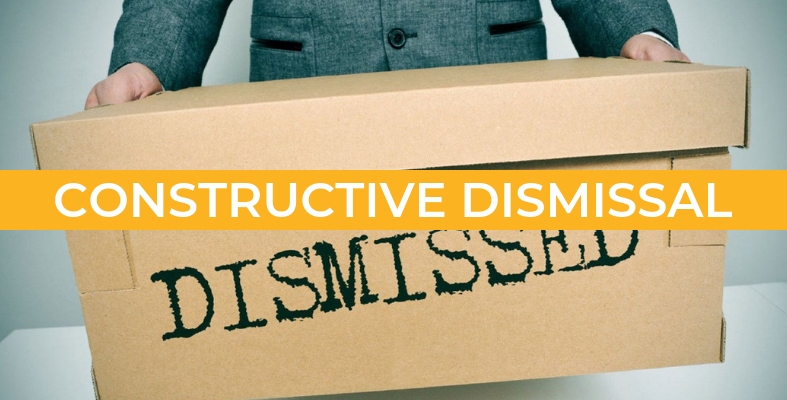
HR Guide: Constructive Dismissal in Malaysia
Are You Hiring?
Find candidates in 72 Hours with 5+ million talents in Maukerja Malaysia & Ricebowl using Instant Job Ads.
HIRE NOW
In Malaysia, the term “constructive dismissal” is defined as an act of an employee in terminating their employment due to a breach of contract committed by the employer. The breach committed must have been so severe that it had modified the essential terms of an employee’s employment contract, in which the employee has no choice but to resign.
In such cases, even though there isn’t any direct dismissal by the employer, it could still amount to unfair dismissal because of the employer’s actions.
What can be considered as a legitimate breach of contract that would fall under constructive dismissal?
Whenever there’s a constructive dismissal claim that is referred to the Industrial Court for determination, the Court will normally investigate whether these 4 essential elements are proven in order to establish constructive dismissal.
1. There must be a breach of Contract by the Employer
In law, the threshold for constructive dismissal is ruled by the “contract test” which basically affirms that the breach performed by the employer must have been so severe that it affects the essential terms of an employment contract.
This would include taking into account whether the responsibilities and duties of an employee have been significantly modified that it establishes a significant breach of an Employment Contract.
An employer’s unreasonable conduct doesn’t mean one has a valid claim for unfair dismissal, especially if there is no breach of contract. Otherwise, it would be almost impossible for an employer to run their business if employees could claim constructive dismissal every time they view an employer’s conduct to be unreasonable.
2. The breach must be adequately important to justify the employee resigning
It’s not enough to have a breach of the employment contract, the breach committed must be severe enough to justify a constructive dismissal claim. Disagreements with one’s employers cannot be seen as a grave breach.
The severity of each breach will be examined on a case by case basis but the case laws have listed several situations that have been identified as examples of significant breaches:
-
Planned substantial reduction of wages, commissions, allowances or benefits without good reason.
-
Failure to provide a safe working environment
-
“Forced resignations” – resignations clearly made following threats or duress

3. Non-bona-fide reduction of duties or change to job scope
The employee must resign in response to the breach and not for any other irrelevant reasons
Where there is a constructive dismissal claim, the employee must resign because of the breach. Before leaving, it is crucial that an employee points out the specific reasons for their resignation and the cause of the resignation.
The employee’s reason for resigning must match with the breach alleged. If at the time, the employee provides a different reason for resignation (for example better job offer elsewhere), it may be hard for them to later claim that they left due to the breach by the employer.
4. The employee shall make haste
It is a crucial factor to be quick in filing a claim for constructive dismissal. When the breach happens, the employee should take immediate action by either protesting, writing a notice to the employer or resign from their post.
By staying with the company, an employee may be seen as having accepted the breach committed and waiving their right for legal recourse. In some case, a delay of one month to act was even held to have been too long to entitle an employee to claim for constructive dismissal.
Constructive dismissal allegations should not be taken lightly as the law places a high threshold to be met for constructive dismissal. One should think hard to make sure the above elements are ticked off before deciding to file for constructive dismissal. If not, the claim could backfire as and the employer might sue in lieu of notice.
Are You Short on Staff? Reach millions of job seekers on Maukerja, Ricebowl, LinkedIn, Jora, Trovit, and more when you post a job on AJobThing.com
Source: Donovan & Ho
Related articles
Can an Employer Reduce the Salary of a Downgraded Employee?

